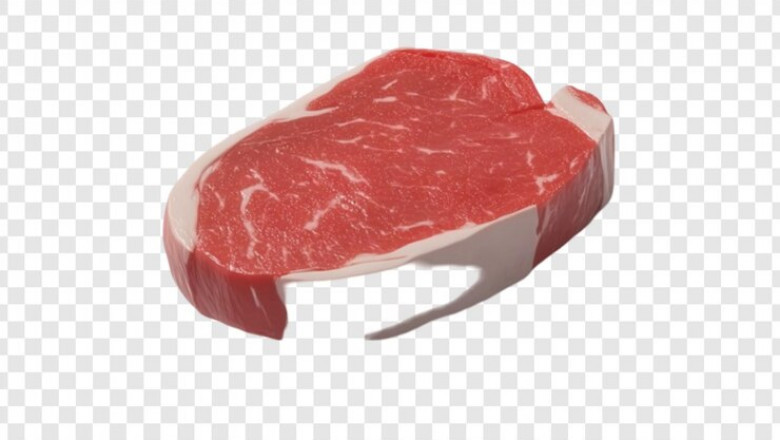views
The packaged meat market is an ever-evolving industry, catering to the increasing demand for convenience and quality among consumers. However, despite the growth potential, the sector faces several inhibitors that affect its expansion. These inhibitors range from regulatory challenges to consumer concerns about health and sustainability. Understanding these barriers is essential for market players seeking to navigate and overcome these obstacles.
-
Health and Wellness Concerns
As awareness of health issues grows, consumers are becoming more conscious about the food they consume. Packaged meats, which are often high in fat, sodium, and preservatives, face scrutiny from health-conscious individuals. Reports linking excessive consumption of red meat to cardiovascular diseases and cancer have led to a shift in consumer behavior. Many consumers are opting for plant-based or leaner protein sources, which is a direct challenge to the packaged meat industry. As health concerns rise, manufacturers are pressured to innovate and offer healthier alternatives, such as lower-sodium, organic, or hormone-free options. However, such changes often require significant investment and may result in increased production costs. -
Sustainability Issues
The global shift toward sustainability has led to increased concern over the environmental impact of the packaged meat industry. Meat production, particularly beef, is a significant contributor to greenhouse gas emissions and deforestation. Packaging waste is also a major issue, with a significant portion of the plastic used in packaging not being recyclable. As governments and consumers alike place greater emphasis on sustainability, companies in the packaged meat sector face pressure to reduce their environmental footprint. Sustainable farming practices, improved packaging materials, and waste reduction initiatives are all necessary for the industry to align with current environmental expectations. However, transitioning to more sustainable practices can be costly and time-consuming, acting as a barrier to some businesses, particularly smaller producers. -
Regulatory Challenges
Government regulations, especially concerning food safety, labeling, and hygiene standards, play a pivotal role in shaping the packaged meat market. Regulatory requirements can be stringent, particularly when it comes to ensuring meat is processed, packaged, and transported in a manner that is safe for consumers. These regulations can vary significantly between countries, adding complexity for multinational companies that operate across borders. Compliance with these standards can involve costly certifications, regular inspections, and adherence to strict packaging protocols. As regulations continue to tighten, the costs for companies may rise, potentially limiting their ability to stay competitive while ensuring they meet all compliance requirements. -
Price Volatility
The packaged meat market is significantly affected by price fluctuations, particularly in raw meat costs. Prices of raw meat can fluctuate due to a variety of factors, including feed costs, livestock diseases, supply chain disruptions, and geopolitical events. These fluctuations can make it difficult for packaged meat companies to predict costs accurately and set stable prices for their products. For companies that rely on a steady profit margin, such volatility can lead to challenges in maintaining pricing strategies while keeping products affordable for consumers. Furthermore, in times of economic downturn, consumers tend to cut back on discretionary spending, including premium packaged meats, making price volatility a critical inhibitor to market growth. -
Competition from Plant-Based Alternatives
The rise in popularity of plant-based alternatives to meat products has created significant competition for the packaged meat industry. Many consumers, driven by ethical, environmental, or health-related concerns, are choosing plant-based meats over traditional animal-based products. These alternatives often appeal to the growing vegan, vegetarian, and flexitarian populations. The influx of new plant-based brands, as well as large corporations investing in plant-based innovations, poses a challenge to the packaged meat market. Companies in the packaged meat sector are therefore tasked with finding ways to compete by diversifying their product lines and improving their offerings to meet evolving consumer preferences. -
Changing Consumer Preferences
Consumer preferences are shifting rapidly, especially among younger generations. Millennials and Generation Z are more likely to choose plant-based options and are increasingly concerned with the ethical treatment of animals. This demographic is also more likely to seek out locally sourced and ethically produced products. The trend toward plant-based diets, sustainable sourcing, and more transparent food systems has put packaged meat manufacturers under pressure to adapt. As these changes continue, the market may see a further shift away from traditional meat products in favor of plant-based or lab-grown alternatives. -
Supply Chain Disruptions
The packaged meat industry is highly dependent on a robust and reliable supply chain. However, disruptions such as the COVID-19 pandemic, natural disasters, or labor shortages have shown how vulnerable the sector can be. During the pandemic, for instance, meat processing plants faced temporary closures due to health concerns, resulting in supply shortages and price hikes. Such disruptions can hinder the ability of companies to meet consumer demand, impacting profitability. Furthermore, supply chain challenges can increase the costs of raw materials, packaging, and logistics, further contributing to the inhibitors facing the packaged meat market. -
Consumer Trust and Transparency
Consumer trust has become a crucial element in the packaged meat industry. As food scandals related to contamination or misleading labeling have surfaced, consumers have become more cautious about the meat products they buy. The demand for transparency regarding sourcing, processing, and production practices is growing. Companies that fail to provide clear, truthful information about their products risk losing customer loyalty. This demand for transparency requires investments in traceability and authentication technologies, which can be a financial burden for some companies.
Conclusion
The packaged meat market faces several significant inhibitors, ranging from health concerns and sustainability pressures to regulatory challenges and competition from plant-based alternatives. Addressing these obstacles requires the market to evolve with the changing demands of consumers while investing in innovation, sustainability, and regulatory compliance. Companies that can successfully navigate these challenges will be in a better position to capitalize on the growing opportunities in the market. However, those that fail to adapt may find themselves left behind in an increasingly competitive and conscientious marketplace.






















Comments
0 comment